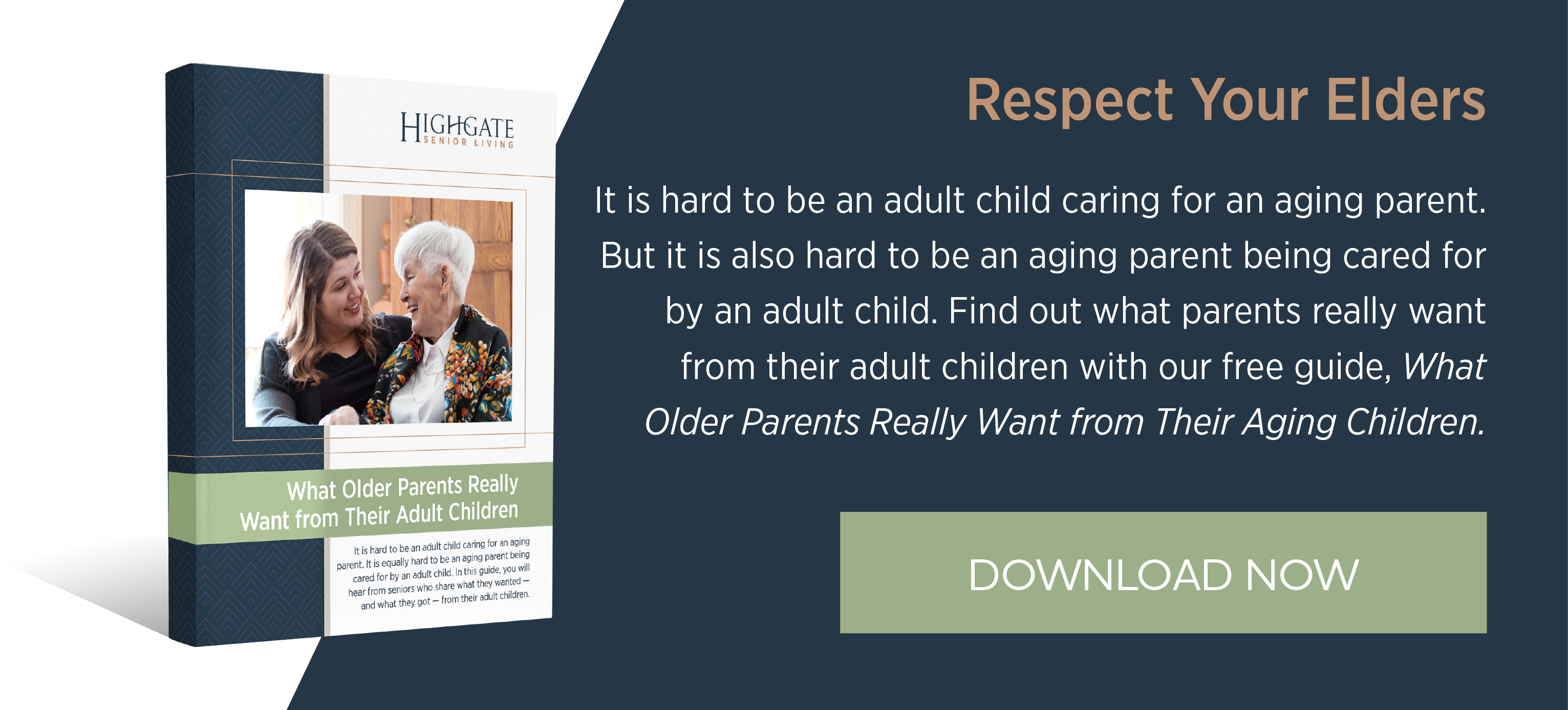 Taking away the car keys, parenting your parents, role reversal — you might hear these phrases a lot when people talk to or about older adults, but elderspeak and caregiving catchphrases can come off as condescending and breed resentment and miscommunication.
Taking away the car keys, parenting your parents, role reversal — you might hear these phrases a lot when people talk to or about older adults, but elderspeak and caregiving catchphrases can come off as condescending and breed resentment and miscommunication.
Yes, you might need to help your parent use the bathroom or drive them anywhere they go. These are reasons why some people feel as if they’re “parenting their parents” or that they’ve become the parent and their parents have become the child.
Not only is that not helpful, but it’s not true, either. Although your parents are getting older and they might need a little more help than they once did, they are still adults. Your parents are your parents, even if you have to become their caregiver.
Why Caregiving Catchphrases Hurt
Elderspeak is a term that refers to the way some people speak to older adults, especially those with Alzheimer's disease or another kind of dementia. It might involve using a singsong voice, changing pitch and tone, and exaggerating words — kind of like baby talk. Other hallmarks of elderspeak include simplifying the length and complexity of sentences, speaking more slowly, and using terms like “sweetie,” “honey,” or dear.”
Of course, this way of communicating is meant to be helpful and supportive. However, many older adults feel as if it implies they’re not competent. Elderspeak feels patronizing, and it’s hard to not internalize the negative messages and doubt their own competence.
How older adults feel about aging is incredibly important to their overall health and wellness. Research shows that the more older adults are hopeful and realistic about the process of growing older, the more likely they are to maintain their physical and emotional health.
Caregiving catchphrases like “role reversal” might also negatively affect your feelings and attitudes about caregiving and your relationships with your parents. When boundaries aren’t set and expectations aren’t communicated, resentment and anger grow.
By avoiding these popular catchphrases, you help preserve your parent’s dignity, independence, and sense of control as well as your relationship with them.
Tips for Navigating Your Changing Relationship
For many older adults, receiving help from your adult children is viewed as a mixed blessing.
They want to feel independent, but they also appreciate the help because they still want to connect with their loved ones — and they are relieved that help will be available if they need it.
It’s not always easy to figure out how to provide guidance and a safe environment for your parent while trying to respect their desire to be independent.
1. Care Partner, Not Giver
Instead of thinking about your relationship as one in which you provide care for your mom and dad, think about your relationship with your parents as a partnership. How can you help your parents make the best decision for themselves?
2. Start the Conversation
There are no written instructions for making life work as a caregiver — so the most important thing you need to do is communicate with your loved one.
It can be scary approaching conversations like this for the first time. No one really wants to ask a parent, “Mom, at what point would you not want to have to manage the house yourself?” or “If you started to get forgetful and I was worried about you living alone, what would other options be?”
Having these conversations in advance of a crisis allows you to talk through possible solutions together. Having options is usually received better than being told what you must do.
Keep in mind that there may come a time when you must speak legally and financially for your parents. It is crucial to work through this difficult transition early on and obtain power of attorney and other legal documents long before they are needed to avoid major issues.
3. Develop Understandings
Create a safe space for parents to share their fears, concerns, feelings, and desires. What does your loved one want help with? What are you willing to do? How are you going to ensure you don’t get lost in the process?
An example of an understanding might be: Mom is not able to handle the finances anymore. She agrees that it is OK if you take over this responsibility. Another example could be: Dad needs help bathing and toileting. It is dangerous for you to try to help and embarrassing for him for you to see him like that. You will hire someone to do this.
Keep the line of communication open.
4. Focus on Their Strengths
Focus on what they can do, not what they can’t. Try asking questions like, “What are some things you used to enjoy doing that you haven’t done in a while?” Maybe your parent can’t pursue the roles and passions of their younger years, but they can still tap into their past for inspiration. You can help them try something new that is either an extension of what they did before or that takes them in a new direction.
Empowering them to do activities and tasks as independently as possible helps them retain their abilities and boosts self-esteem.
5. Watch Your Tone
Make a conscious effort to use words and a tone of voice that infuse dignity into the care you provide, especially with tasks that can be embarrassing, such as bathing, toileting, and dressing. Interact with them in the way you would want to be treated if the tables were turned.
For more tips and information about supporting an aging parent, including advice from aging parents themselves, download our eBook What Older Parents Really Want from Their Adult Children.






